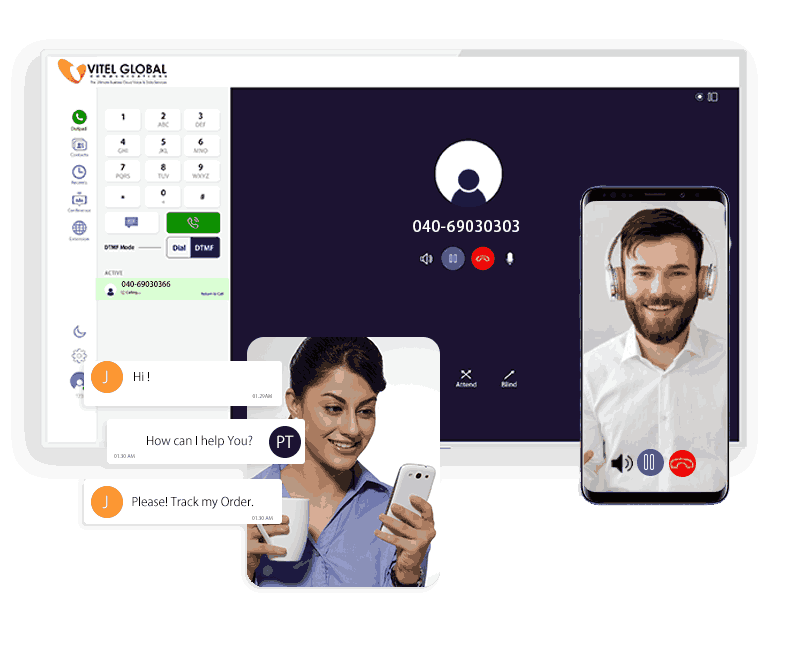
The Profits of Hybrid Work in The Workplace
Many people are still sceptical about hybrid work, but it has many benefits. It can reduce the environmental stress of going to an office and working 8 hours a day. It also reduces the impact of commuting on quality of life, which is very important given the increasing urbanization. There are also a number of companies that are now starting to use this idea.
The future is a hybrid work and it has a lot of benefits. It's definitely one point that you need to pay attention to if you want to be successful in the future.
What is Hybrid Work?
Hybrid work is a mix of remote and in-office work. It’s the best of both worlds – you get the flexibility of working from home with the collaboration and social interaction of working in an office.
hybrid work has become increasingly popular in recent years, as technology has made it easier to stay connected and collaborate remotely. And now, with the outbreak of COVID-19, more and more companies are implementing hybrid work policies to allow their employees to work safely.
There are lots of positive things when talking about of hybrid work for both employees and employers. For employees, hybrid work can provide a better work-life balance, increased flexibility and autonomy, and less commute time. For employers, hybrid work can lead to increased productivity, engagement and retention.


If you’re considering implementing a hybrid work policy in your workplace, here are some tips to get started:
- Explain in details what “hybrid work” means for your business.
- Assess which roles can be done remotely or partially remotely.
- Develop policies and guidelines around remote work, including expectations for communication and collaboration.
- Provide the necessary tools and resources for employees to work efficiently.
Why a hybrid work environment
is the best for employees
Spread the Awareness among
your Employees about HYBRID WORK
The hybrid workplace is the perfect environment for employees who crave both independence and collaboration. With a hybrid workplace, employees have the best of both worlds: the ability to work independently when they need to focus, and the ability to collaborate with colleagues when they need support.
The hybrid workplace is also the perfect environment for companies that want to offer their employees a more flexible work schedule. With a hybrid workplace, employees can choose when and where they want to work, which gives them the freedom to create a work-life balance that works for them.


There are many benefits of hybrid work, but here are just a few:
Hybrid work environments promote creativity and innovation.
When employees are given the opportunity to work independently, they are able to think outside the box and come up with creative solutions to problems. This type of environment fosters an atmosphere of innovation, which is essential for any company that wants to stay ahead of the competition.
Hybrid workplaces increase productivity.
When employees have the ability to design their own work schedule, they are more likely to be productive during the hours that they are actually working. This is because they can tailor their work schedule around their natural rhythms and avoid burn.
Creating Flexible Arrangement for Workplaces.
There are a few key benefits that companies can experience by implementing a hybrid work model in their workplaces. First, it can help to improve work-life balance for employees. This is because employees have more flexibility in terms of when and where they work, which can make it easier to manage personal and professional responsibilities. Second, hybrid work can increase productivity levels by allowing employees to work during times when they are most productive. Studies have shown that people are generally more productive when they have some control over their work schedule. Finally, hybrid work can also help to reduce costs associated with workplace infrastructure, since employees can work remotely if needed.

What are the challenges companies might face in transitioning to a hybrid work environment?
There are a few challenges companies might face when transitioning to a hybrid work environment. One challenge is ensuring that employees have the right equipment and space to be productive at home. Another challenge is managing expectations around work hours and availability. And finally, companies will need to think about how to create a cohesive culture across remote and in-person employees.
But while there may be some challenges to overcome, the benefits of hybrid work are clear. By offering employees the flexibility to work from home part-time, companies can improve work-life balance, attract and retain top talent, and boost productivity. If you're thinking about making the switch to hybrid work, consider these benefits and challenges before making the transition.
There are many benefits to hybrid work in the workplace, and more and more companies are starting to adopt this type of work arrangement. Hybrid work allows employees to have a better work-life balance, be more productive, and feel less stressed. It also allows companies to save on office space and costs. If you are considering adopting a hybrid work arrangement in your workplace, we hope that this article has helped you understand the many benefits of doing so.


